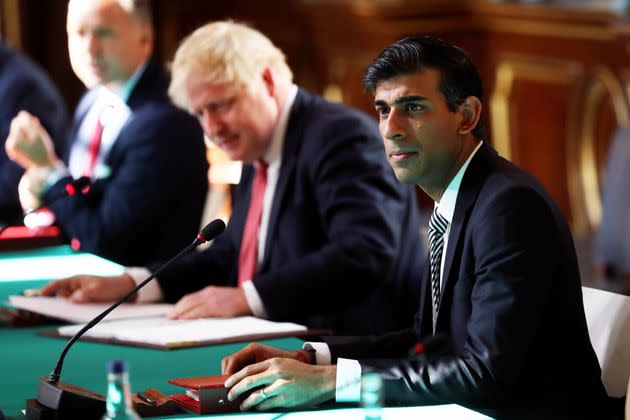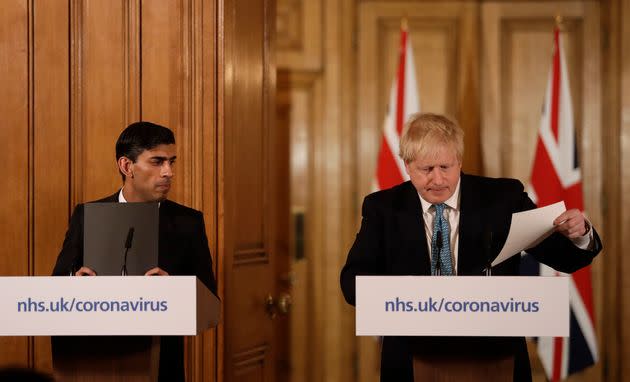
Rishi Sunak He became a household name once he was appointed chancellor under Boris Johnson, shortly before the first COVID-19 Closing in March 2020.
He was in charge of permission and pushed the Eat Out To Help Out scheme to try to jump-start the economy, only for another wave of infections to hit weeks later.
Now on the campaign trail hoping to get another shot at the No. 10 spot, the prime minister has largely avoided the issue of COVID-19 In total: so far only the work permit plan has been mentioned.
But the pandemic shook the UK to its core and caused Johnson to resign in July 2022, over those repeated breaches of Downing Street lockdown rules known as party door.
But leaving aside the scandal that dominated headlines for months, it is worth remembering the chaotic way in which decisions were made at the top of government during the pandemic.
These are just some of the most notable decisions the Conservatives made at the height of Covid.
1. Failed antibody tests
then health secretary Matt Hancock – who is not running for re-election – promised that there would be 3.5 million antibody tests available to employees.
Then they could test themselves and see if they could work again.
It later emerged that the supervising official, Professor John Newton, said the evidence was “not good enough to be worth implementing”, but the scheme reportedly cost the British taxpayer £15.5 millions anyway.
2. Supply of PPE
The health department promised there would be enough PPE to support the NHS and social care workers.
However, the UK refused on three separate occasions to wholesale purchase PPE from the EU.
BBC Panorama later accused the government of inflating figures on how much of this equipment the UK had, as officials allegedly counted each glove separately.


3. Covid tests
On 2 April 2020, Hancock pledged to offer 100,000 Covid tests per day by 1 May.
However, the government only managed to claim to have achieved this goal by counting nose and throat swabs separately.
Some home testing kits were also sent but not processed, but were still included in the total of 122,347 that the government said had been carried out.
4. Track and trace
A plan intended to help identify anyone who had been in close contact with an infected person ended up being a complete waste.
It costs around £22 billion, the same as the Department for Transport’s annual budget. The consultants were paid £1,000 a day.
Public Accounts Committee chair Meg Hillier said in 2021: “Despite the unimaginable resources devoted to this project, Test and Trace cannot point to a measurable difference in the progress of the pandemic and the promise with which it was justified. this enormous expense: avoid Another blockade, it has been broken twice.”
5. Locking promises
So-PM Boris Johnson He promised there would be no second national lockdown in September 2020 and would instead introduce the three-tier system.
A second lockdown soon hit and Christmas was a disaster for many families across the country.
6. Eat out to help out
Sunak came up with a plan to subsidize people going to restaurants and cafes in the summer of 2020, a plan that was later blamed for the rise in infections in the autumn.
According to the Covid Inquiry, this plan was launched without informing the officials in charge, such as the government’s former chief scientific adviser, Patrick Vallance, and England’s chief medical officer, Chris Whitty.
The UK’s top civil servant, Simon Case, also told the inquiry: “I was also not aware of ‘eat out to help out’ until it was announced.”
The Covid task force also claimed last year that it could do “nothing” to stop Sunak’s plan.


